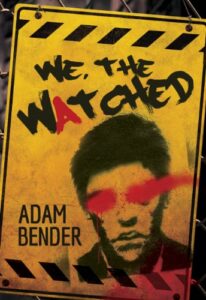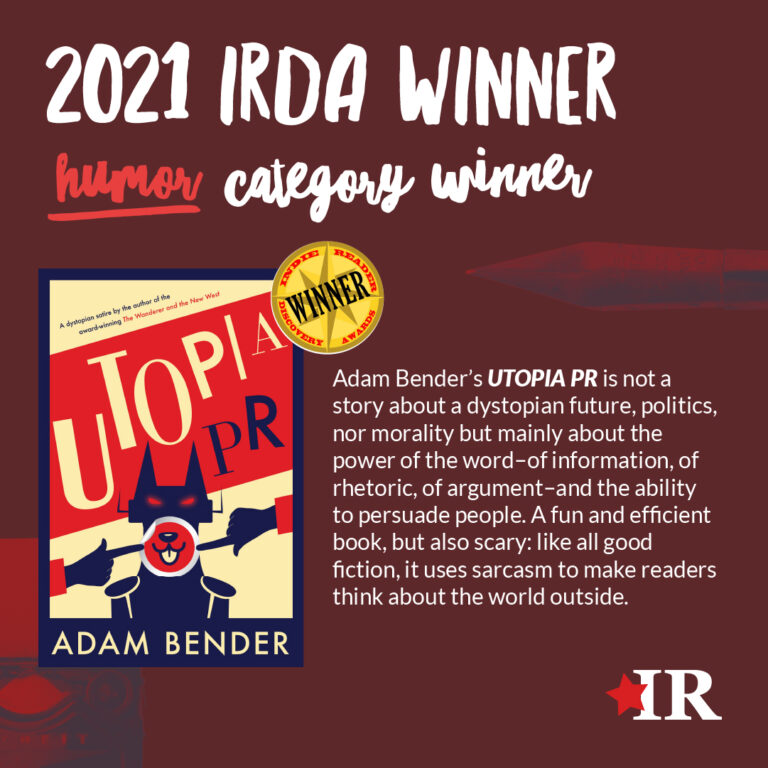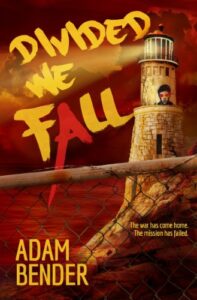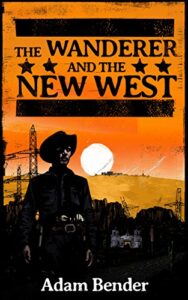
Utopia PR was the winner in the Humor category of the 2021 IndieReader Discovery Awards, where undiscovered talent meets people with the power to make a difference.
Following find an interview with author Adam Bender.
What is the name of the book and when was it published?
Utopia PR was published Feb. 22, 2021.
What’s the book’s first line?
The glow of fluorescent streetlamps was the only light as I squinted through cracked blinds at the early morning world outside the window.
What’s the book about? Give us the “pitch”.
A sci-fi satire about a public relations rep seeking work-life balance while managing crisis after crisis for a dystopian president.
What inspired you to write the book? A particular person? An event?
My earlier novels were fairly serious dystopian affairs, but at some point our reality seemed to catch up with what I was writing. So, I wanted to write something fun that would get me—and hopefully my readers—laughing again.
I’m a journalist by day, so I’ve always been fascinated with public relations and political spin. A lot of this book comes from my own experiences dealing with PR people. Also, like a lot of people, I’ve watched way too much CNN over the past five years. I’d find myself reaching for a notebook every time a government official answered a question about a grave threat to human life with a statement about how many jobs they were creating.
What’s the most distinctive thing about the main character? Who-real or fictional-would you say the character reminds you of?
Blake “The Hammer” Hamner (the n is silent) has an astonishing ability to spin and rationalize the mad actions and utterances of his boss, Our Leader. In that way, he’s a bit like Nick Naylor, the big tobacco spokesman from Thank You for Smoking by Christopher Buckley.
What’s the main reason someone should really read this book?
Several readers and reviewers have said it’s exactly the kind of bonkers story they needed right now to lighten the mood during these dark times.
If they made your book into a movie, who would you like to see play the main character(s)?
I could see someone like Paul Rudd as crisis communications manager Blake Hamner. He’s great at putting on a perpetually sunny face, even though more tends to be going on beneath the surface.
When did you first decide to become an author?
I have been writing since the day I first held a crayon! No, really. When I was a little kid, I created a series called “The Strange Planet” that I made using black construction paper and a white crayon. The planet was strange because it constantly changed shape and size, which was kind of a creative explanation on my part as to why I couldn’t draw the planet the same way on each page.
Then, from grades one through six we had something called “Young Authors.” Each year we’d have to write a book. I loved comics, so of course all of my books were about superheroes. One book a year wasn’t enough for me, so I also wrote stories outside of school. I guess I never stopped.

I have three other novels. Look, they’re not as funny as Utopia PR, but they do have funny parts. In fact, you might say Utopia PR is me giving into my tendency to include comic relief.
My first books We, The Watched and Divided We Fall are two parts of one dystopian epic about an amnesiac who wakes in a forest outside the capital of a nation he doesn’t recognize. Calling himself Seven, he struggles to conform in a surveillance society.
The Wanderer and the New West is what I call a dystopian western. A rogue vigilante known only as the Wanderer seeks redemption in a lawless, near-future America that fully protects the rights of armed citizens to stand their ground against mass shooters and motorcycle gangs.
What do you do for work when you’re not writing?
I’m a journalist. I currently report on state telecom and internet laws for Communications Daily, which is based in Washington, D.C. I’ve also covered Congress, the FCC and federal courts. I worked three years in Sydney covering Australian business tech for Computerworld.
How much time do you generally spend on your writing?
I try to spend at least an hour or two every weekend. Since I have another job during the week, it can be hard to make time or have the energy to write Monday to Friday. However, putting aside even a small amount of time every Saturday or Sunday helps me make progress.
What’s the best and the hardest part of being an indie?
The best part is having full control over my work, including when it’s released and what the cover looks like. The hardest part is marketing, since I’ve got a limited budget and don’t have the same connections as a traditional publisher. I always appreciate it when a reader helps spread the word by leaving a review or telling a friend.
Would you go traditional if a publisher came calling? If so, why?
I’d certainly be open to it. Ultimately, I’d like to get my writing off my computer into reader’s hands as soon as possible. Indie publishing gives me the power to publish quickly to a wide audience.
Is there something in particular that motivates you (fame? fortune?)
Current events tend to motivate me. I’ve always felt that fiction is a great way to debate political issues without turning off readers who might usually put up a wall to that kind of thing.
How the U.S. responded to 9/11, including with greater surveillance powers in the Patriot Act, inspired We, The Watched. Increasing gun violence in America got me writing a kind of reverse-dystopian tale in The Wanderer and the New West where there was not enough government. Hearing actual White House officials use almost comically Orwellian terms like “alternative facts” inspired Utopia PR.
Which writer, living or dead, do you most admire?
I admire Ray Bradbury’s ability to create vivid, powerful images with his words. Fahrenheit 451 has been a big influence. That book had a robot hound like the one that guards Our Leader’s Compound in Utopia PR.
Which book do you wish you could have written?
Slaughterhouse-Five by Kurt Vonnegut is an impressive book to me. Vonnegut writes bitingly funny sentences and paragraphs with so few words. I tried in Utopia PR to apply that kind of quick pacing and word economy, but Vonnegut will always remain the master. So it goes.


